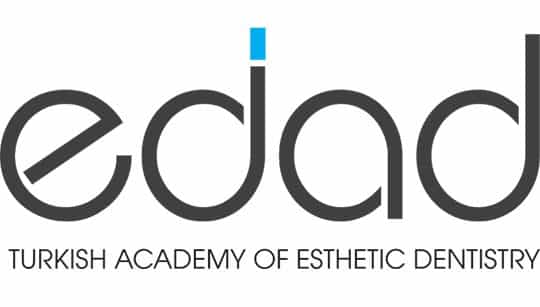Full mouth dental restoration with implants is a comprehensive and transformative dental procedure that can drastically improve your oral health and overall quality of life. If you have been experiencing significant dental issues or are unhappy with the state of your teeth, this restorative treatment may be a viable option for you. However, before embarking on this journey, it is crucial to understand the procedure, evaluate your need for restoration, weigh the benefits and risks, consider the cost and financing options, and ultimately make an informed decision in consultation with your dentist.
Understanding Full Mouth Dental Restoration
What is Full Mouth Dental Restoration?
Full mouth dental restoration, also known as full mouth reconstruction or full mouth rehabilitation, is a complex and comprehensive dental treatment that involves the complete restoration of all the teeth in both the upper and lower jaws. It is designed to address a wide range of dental problems, including tooth loss, decay, gum disease, bite problems, and functional and aesthetic issues. The primary objective of full mouth dental restoration is to rebuild the function, health, and appearance of your teeth and gums, resulting in a natural-looking and fully functional smile.
Full mouth dental restoration typically requires a multidisciplinary approach involving various dental specialists such as prosthodontists, periodontists, oral surgeons, and orthodontists. These experts work together to develop a customized treatment plan tailored to the specific needs of each patient. The process may include procedures such as dental implants, crowns, bridges, veneers, orthodontics, and periodontal treatments to achieve optimal oral health and aesthetics.
The Role of Dental Implants in Restoration
Dental implants play a crucial role in full mouth dental restoration. They serve as the foundation for the replacement teeth and provide support, stability, and durability that mimic natural teeth. Dental implants are titanium posts that are surgically inserted into the jawbone to replace missing tooth roots. They integrate with the bone over time through a process called osseointegration, which ensures a strong and secure base for the artificial teeth.
Implant-supported restorations offer numerous benefits, including improved chewing efficiency, speech clarity, and overall comfort compared to traditional removable dentures. Additionally, dental implants help preserve bone structure and prevent bone loss that can occur when teeth are missing. This not only maintains facial aesthetics but also supports long-term oral health by preventing further dental complications.
Evaluating Your Need for Full Mouth Restoration
When it comes to considering full mouth dental restoration, there are a multitude of factors that can come into play. While severe tooth decay or damage is a common reason for seeking full mouth restoration, other issues such as extensive tooth loss, advanced gum disease, occlusion problems (bite issues), chronic jaw pain or headaches, and aesthetic concerns can also prompt the need for comprehensive dental treatment. Each of these conditions requires careful evaluation by a skilled dental professional to determine the most appropriate course of action for restoring both oral health and function.
Moreover, the decision to undergo full mouth restoration is not one to be taken lightly. It involves a thorough assessment of your overall oral health, including the condition of your teeth, gums, jaw, and bite alignment. By seeking the expertise of a qualified dental practitioner, you can gain valuable insights into the extent of your dental issues and explore the various treatment options available to address them effectively.
Common Reasons for Considering Full Mouth Restoration
There are various situations that may warrant full mouth dental restoration. Some common reasons include severe tooth decay or damage, extensive tooth loss, advanced gum disease, occlusion problems (bite issues), chronic jaw pain or headaches, and aesthetic concerns. If you are experiencing any of these issues, it is essential to consult with a qualified dental professional who can assess your specific condition and determine if full mouth restoration is the right treatment option for you.
Signs You May Need Dental Implants
Dental implants are particularly beneficial for individuals who have one or more missing teeth or require extraction due to irreparable damage or decay. Some signs that you may need dental implants include difficulty chewing or speaking, shifting or moving teeth, bone loss in the jaw, changes in facial appearance, and reduced self-confidence due to missing teeth. Your dentist will perform a comprehensive examination and assess whether dental implants are suitable for your specific needs.
The Procedure of Full Mouth Dental Restoration
Pre-Procedure Preparations
Prior to undergoing full mouth dental restoration, thorough planning and preparations are necessary. Your dentist will begin the process by conducting a detailed examination, including X-rays, impressions, and digital scans. This diagnostic phase will help your dentist develop a personalized treatment plan, taking into consideration your specific dental needs and goals. Additionally, any existing oral health issues, such as gum disease or tooth decay, will be addressed before the restorative procedure can proceed.
During the examination, your dentist will carefully assess the condition of your teeth, gums, and jawbone. This comprehensive evaluation allows them to identify any underlying issues that may need to be resolved before the restoration process begins. By addressing these concerns beforehand, your dentist can ensure a solid foundation for the restorative work, leading to a more successful and long-lasting outcome.
The Process of Implant Placement
The placement of dental implants is a surgical procedure that is performed in multiple stages. It involves the precise positioning of the titanium implant posts into the jawbone. Depending on your individual case, bone grafting or sinus augmentation may be required to ensure optimal implant stability and integration. After the implants are placed, a healing period of several months is necessary to allow the implants to fuse with the bone successfully. During this time, temporary restorations may be used to restore aesthetics and function.
The surgical placement of dental implants requires a high level of skill and precision. Your dentist will carefully map out the optimal locations for the implants, taking into account factors such as bone density, bite alignment, and overall aesthetics. By using advanced techniques and state-of-the-art technology, your dentist can ensure the accurate placement of the implants, resulting in a natural-looking and functional smile.
Post-Procedure Care and Recovery
Following full mouth dental restoration, proper post-operative care and adherence to your dentist’s recommendations are crucial for optimal healing and long-term success. You may experience some discomfort, swelling, and bruising after the procedure, but these symptoms can be managed with prescribed medications and cold compresses. Maintaining good oral hygiene practices, attending follow-up appointments, and adopting a healthy lifestyle will contribute to the longevity of your restored smile.
During the recovery period, it is important to follow your dentist’s instructions regarding diet and oral care. Soft foods may be recommended initially to avoid placing excessive pressure on the newly restored teeth. Your dentist may also provide you with specific guidelines for cleaning and caring for your implants and restorations. By following these instructions diligently, you can ensure proper healing and minimize the risk of complications.
Benefits and Risks of Full Mouth Dental Restoration
Advantages of Dental Implants
Dental implants offer numerous benefits that make them an excellent choice for full mouth dental restoration. They provide a long-term solution to tooth loss, improve oral function, enhance speech clarity, prevent bone loss, and preserve facial structure. Additionally, dental implants are incredibly durable and offer exceptional aesthetic results, allowing you to smile, eat, and speak with confidence.
Furthermore, dental implants are designed to fuse with the jawbone, providing a stable foundation for artificial teeth. This integration helps stimulate bone growth and prevent further deterioration, maintaining the overall health of your jaw and facial structure. Unlike traditional dentures, implants do not rely on neighboring teeth for support, preserving the integrity of your natural teeth.
Potential Complications and How to Mitigate Them
While full mouth dental restoration with implants has a high success rate, there are potential risks and complications to be aware of. Some possible issues include infection, implant failure, nerve damage, and sinus problems. However, these risks can be minimized by selecting an experienced and qualified dental professional, meticulously following pre and post-operative instructions, and maintaining regular dental visits for ongoing care and monitoring.
In addition to these precautions, proper oral hygiene practices, such as regular brushing, flossing, and using antimicrobial mouthwash, can significantly reduce the risk of complications. It is essential to attend follow-up appointments as scheduled to ensure that your implants are healing correctly and to address any concerns promptly. By taking proactive measures and staying informed, you can maximize the benefits of full mouth dental restoration while minimizing potential risks.
Cost and Financing of Full Mouth Dental Restoration
Estimating the Cost of Dental Implants
The cost of full mouth dental restoration can vary significantly depending on various factors, such as the number of implants required, the need for additional procedures (e.g., bone grafting), the complexity of the case, and the geographical location. It is essential to consult with your dentist to obtain an accurate cost estimate and discuss potential financing options available to you.
When considering the cost of dental implants, it’s important to factor in not just the initial surgery and implant placement, but also the potential need for additional procedures like sinus lifts or nerve repositioning. These supplementary treatments can impact the overall cost of the restoration but are crucial for ensuring the long-term success and stability of the implants. Your dentist will assess your specific needs and provide a comprehensive treatment plan that outlines all associated costs.
Insurance and Financing Options
While dental insurance plans may provide partial coverage for certain aspects of full mouth dental restoration, it is important to note that comprehensive restorations are often considered elective procedures and may not be fully covered. However, many dental practices offer flexible financing options, such as monthly payment plans or third-party financing, to help make the treatment more affordable and accessible.
Some dental offices also work with specialized financing companies that focus specifically on healthcare expenses. These companies offer low-interest loans or credit lines tailored to medical and dental procedures, making it easier for patients to manage the cost of extensive treatments like full mouth restorations. It’s worth exploring all available financing options and discussing them with your dental provider to find a solution that fits your budget and allows you to achieve optimal oral health.
Making the Decision: Is Full Mouth Restoration Right for You?
Factors to Consider Before Proceeding
Before committing to full mouth dental restoration, it is crucial to consider various factors. These include your overall oral health, the severity of your dental issues, your expectations and goals, financial considerations, and your commitment to maintaining proper oral hygiene and attending regular dental appointments. Open and honest communication with your dentist is vital to ensure that all your questions and concerns are addressed before making a decision.
Consulting with Your Dentist
The decision to undergo full mouth dental restoration is a significant one and should not be taken lightly. Consulting with a highly skilled and experienced dentist who specializes in full mouth reconstruction is crucial to ensure that the treatment plan is tailored to your specific needs and goals. Your dentist will thoroughly evaluate your dental health, discuss all available options, and answer any questions you may have, empowering you to make an informed decision about your dental health and well-being.
Full mouth dental restoration with implants holds the potential to transform your smile and restore your confidence. By understanding the procedure, evaluating your need, weighing the benefits and risks, considering the cost and financing options, and seeking guidance from a skilled dentist, you can determine if this comprehensive treatment is right for you. Take control of your oral health and embark on a journey towards a renewed and revitalized smile.
When considering full mouth restoration, it is important to understand the various treatment options available. Your dentist may recommend a combination of procedures such as dental implants, crowns, bridges, or veneers to address your specific dental issues. Each treatment option has its own benefits and considerations, and your dentist will guide you in choosing the most suitable approach for your unique situation.
Furthermore, it is essential to have realistic expectations about the outcome of full mouth restoration. While the goal is to achieve a beautiful and functional smile, it is important to understand that the process may require multiple appointments and a certain amount of time for the final results to be achieved. Your dentist will provide you with a timeline for the treatment plan, ensuring that you are fully aware of the duration and steps involved.
Begin Your Journey to a Perfect Smile with Istanbul Dental Clinics
At Istanbul Dental Clinics, we understand the importance of a confident, radiant smile. Our commitment to excellence is reflected in our top-quality teeth veneers, accredited by the Turkey Ministry of Health for meeting the highest standards of care. Experience the transformation with our natural-looking veneers and see the difference in our before and after pictures. With a range of prices to fit your budget, the perfect smile is within reach. Contact Today! to learn more and schedule your appointment at our Istanbul clinic.













